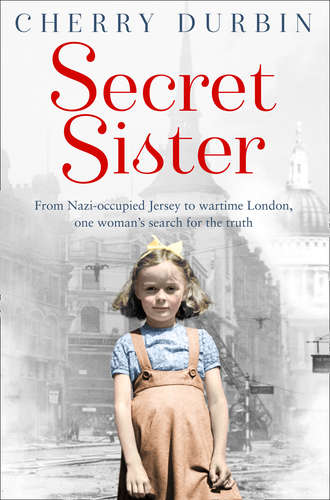Secret Sister: From Nazi-occupied Jersey to wartime London, one woman’s search for the truth

Полная версия
Secret Sister: From Nazi-occupied Jersey to wartime London, one woman’s search for the truth
Настройки чтения
Размер шрифта
Высота строк
Поля
Конец ознакомительного фрагмента
Купить и скачать всю книгу

